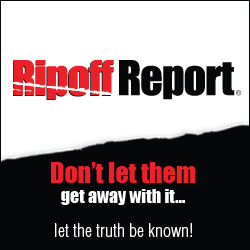
This case is just too great not to review!
Some guy in the United States has a website FCC.COM where he displays information relevant to the Federal Communications Commission. FCC.COM describes itself as “the place for all news and information regarding the Federal Communications Commission.” November 11th’s top FCC related articles included China Vows Major Doping Crackdown [1 vote], Clinton Says Immigrant Licenses Depends on State [1 vote], and Black Fence Sparks Dispute [1 vote] .
Fomento de Construcciones y Contratas in Spain took issue with FCC.COM and brought a claim before WIPO under the Uniform Dispute Resolution Policy. FCC Fomento de Construcciones y Contratas, SA v. “FCC.COM”, Case No. D2007-0770 (WIPO October 7, 2007).
Now Cybertelecom has not done a lot of work around the UDRP, and this does not exactly involved federal Internet law or policy - - but com’on, a domain name dispute involving “FCC.” This I have to review!
Before we unpack how a company in Spain could claim that a Yankee’s use of FCC.COM for FCC related news violates its Spanish trademark, let’s review the video tape and see who’s registered what:
In literary terms, this is the setting of our conflict. “FCC” are the initials of a US federal agency, the Federal Communications Commission. Punch “FCC” into Google and the Federal Communications Commission is the first search result shown. FCC.COM is the ninth search result shown. After 10 pages of search results (about 100 search results), producing many organizations using the abbreviation “FCC” including Families with Children in China, Farm Credit Canada, and Frontier Community College, no search result for Fomento de Construcciones y Contratas were observed (I set my language preference to any language and my region preference to any region, and I was not logged into Google).
Fomento de Construcciones y Contratas appears to hold more “FCC” second level domain names than anyone else, including the US Federal Communications Commission. Of the five FCC domain names found (there may be more) that Fomento de Construcciones y Contratas registered, only FCC.ES resolved to a webpage. FCC.COM.ES, FCC.INFO, FCC.MOBI, FCC.EU, and FCC.BIZ produced “Server Not Found” error messages when I tried to access them (6 pm EST November 10, 2007).
Now to the conflict. On May 25, 2007, Fomento de Construcciones y Contratas filed a complaint before the WIPO Arbitration and Mediation Center. Apparently the complaint was deficient, and on June 11, Complainant filed an amended complaint. On July 25, Complainant requested a suspension of proceedings on the grounds that the parties were negotiating a resolution. However, on August 27, Respondent said, “negotiations, what negotiations? What are you talking about?” (I paraphrase.)
So back to the conflict. According to the UDRP, for the Complaint to succeed, the Complainant must prove that:
“(i) The Domain Name is identical or confusingly similar to a trademark or service mark in which the Complainant has rights; and
(ii) The Respondent has no rights or legitimate interests in respect of the Domain Name; and
(iii) The Domain Name has been registered in bad faith and is being used in bad faith.”
If any one element fails, then the complaint fails.
The three-member review Panel focused on the second and third elements, and therefore waived its hands at the first. The Panel has noted that Complainant’s trademarks incorporate “FCC” (see the logo here) but Complainant has “no registration of the letters FCC simpliciter.” Nevertheless, the Panel concludes,
the Panel is content to deal with this issue solely on the basis of the Complainant’s registered trademarks and finds that the Domain Name is identical or confusingly similar to a trademark in which the Complainant has rights.
The problem, according to the Panel, is that Respondent clearly has a legitimate interest in the domain name. The Respondent has developed a website displaying news and information relevant to the US Federal Communications Commission. A simple review of Respondent’s website makes this clear. Such a review, however, was problematic because Complainant neither included a print out copy of Respondent’s website nor described Respondent’s website in Complainant’s Complaint. And this is a problem, the Panel notes, because even though WIPO panels are reviewing domain name disputes, some WIPO panels “restrict their consideration solely to the papers before them” and never bother to check the Internet. They never go online to check whether there is a legitimate website or other Internet resource associated with these domain names in question. That definitely would present a problem!
Anywho, Respondent successfully demonstrated that he has a legitimate use of the domain FCC.COM and that there was no issue of bad faith (indeed it is an undisputed part of the record that Respondent had never even heard of Complainant). The Complaint therefore fails on the second and third elements.
But it doesn’t end there.
Respondent fires back. Respondent complains of attempted reverse domain name hijacking on the part of Complainant. “Reverse Domain Name Hijacking is defined in paragraph 1 of the Rules as meaning ‘using the Policy in bad faith to attempt to deprive a registered domain name holder of a domain name.’” Respondent characterizes this whole little escapade as a “significant and wholly avoidable trouble and expense” – and the Panel agreed. The Panel breaks from its methodical disposition of the proceeding to expound on
the inexplicable failure on the part of the Complainant to exhibit a print-out of the Respondent’s homepage or, failing that, to include within the body of the Complaint a description of the content of that homepage.
And then,
Anyone examining the Respondent’s website could see that it was a genuine site and that anyone launching a complaint was bound to fail.
The exasperation of the Panel crescendos with
The Complaint makes clear that the Complainant had visited the Respondent’s website. The Complainant mentions the fact that the Respondent’s website features revenue earning advertisements, but does not identify the nature of the advertisements; moreover, the Complainant uses the fact of those revenue earning advertisements (i.e. commercial gain) as a basis for its bad faith claim. The Panel is in no doubt that it was incumbent upon the Complainant in the circumstances of this case, noting in particular the nature of the domain name in question, to provide the Panel with sufficient detail of the Respondent’s website to enable the Panel to make a fair assessment.
The Panel finds that the Complainant’s failure to do so, irrespective of whether or not the failure was intentional (as to which the Panel makes no finding), constitutes an abuse of the Administrative Proceeding. The Reverse Domain Name Hijacking allegation succeeds.
Ouch!
Oh, but the reason why this quibble was interesting is the FCC connection. So, just in case you are wondering, the Panel courteously clarifies - in its only footnote - that even though Complainant’s claim was an abuse of process, if it were the US FCC that had brought the claim, things might - uh - be different:
This is not to say, of course, that the Federal Communications Commission for example would in such a situation necessarily be found liable to a finding of reverse domain name hijacking.
What?! Huh?! Where?! Does the FCC even have a trademark for “FCC?” As far as the FCC is concerned, “trademark issues properly should be addressed by the courts under the trademark protection and unfair competition laws, rather than by the Commission." In Re Toll Free Service Access Codes, Fourth Report and Order and Memorandum Opinion and Order, FCC CC Docket No. 95-155, Para 7 (March 31, 1998). Uh… Yeah… Uh… what the Commish said!
[Disclaimer]
 At least according to one Arizona Superior Court: Children of America v. Magedson, CV 2007-003720 (AR Superior Court Oct. 31, 2007).
At least according to one Arizona Superior Court: Children of America v. Magedson, CV 2007-003720 (AR Superior Court Oct. 31, 2007).

